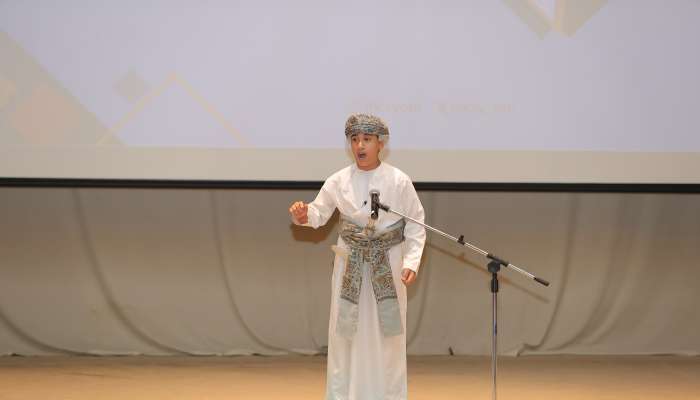
Muscat: The Child Culture Award stands as one of the pioneering initiatives launched by the Ministry of Culture, Sports and Youth to nurture children’s and adolescents’ literary and intellectual expression while reinforcing their connection to Oman’s national identity and cultural heritage.
The award encourages creative expression among children and fosters engagement with themes of identity and belonging.
Ahmed Nasser Al Rashdi, Head of the Child Culture Department at the Directorate General of Knowledge and Cultural Development, stated that the ministry introduced the Child Culture Award in 2021 through its two categories, “Speak So I Can See You" and “Oman Narrates."
The initiative aims to deepen Omani cultural awareness and instill loyalty and national pride in children while enhancing their expressive and imaginative skills. Each year, the award revolves around three distinct themes.
Al Rashdi explained that the competition targets both children and professionals in child culture. The first category, “Speak So I Can See You," is open to Omani and resident children aged 7 to 12, seeking to identify gifted young speakers who can eloquently represent Oman in media and public forums.
The second, “Oman Narrates," invites Omani and Arab writers residing in Oman to produce child-friendly literature that highlights the nation’s cultural heritage for global audiences.
This year’s “Speak So I Can See You" competition saw 523 participants in its preliminary stage—a 133-participant increase from the previous edition—attributed to awareness workshops organised in collaboration with the Ministry of Education’s Career Guidance Centre, involving 70 supervisors and teachers nationwide.
Participants submitted videos on themes such as designing a household robot, representing Oman internationally, or proposing a tourism project showcasing Omani identity.
Meanwhile, “Oman Narrates" attracted 124 entries, up by 84 from last year. Writers crafted stories centered on Omani seasonal traditions—such as Eid, Khareef, rose and pomegranate harvests, and local festivals—to introduce Arab children to Oman’s intangible heritage through engaging visual storytelling.
Notably, the 2025 edition marked the first participation of children with disabilities, including 7 visually impaired and 2 physically impaired contestants.
Al-Rashdi emphasised the award’s role in uncovering new literary talents, particularly among educators who deeply understand children’s mindsets.
The ministry has published five books on Omani heritage for children, compiling winning entries from past competitions. In the 2025 finals, five children—including two visually impaired participants—advanced after direct interviews held during 6-8 July.
Five winning texts, unranked, will be edited and published in “Oman Narrates – Part 4." Arab writers residing in Oman represented five nationalities: Egypt (5), Yemen (3), Lebanon (1), and Tunisia (1).
All “Speak So I Can See You" submissions this year focused on “Representing Omani Etiquette in International Forums.”